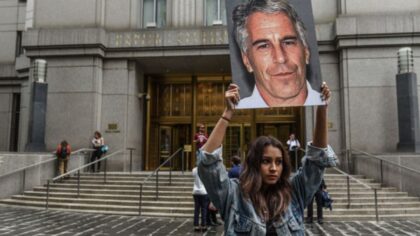Senate Republicans—spurred by former President Trump—advanced a rescissions package aimed at clawing back $1.1 billion in funding from the Corporation for Public Broadcasting (CPB), the primary vehicle through which NPR and PBS receive taxpayer dollars. That push is sparking outrage from the usual left-wing voices rattled by the idea that progressive viewpoints shouldn’t be funded by our tax dollars.
Whether you consume NPR or not, the principle stands. Why should federal tax dollars underwrite journalism and programming that is consistently liberal? Most Americans don’t tune in, and those who do often pay via corporate underwriting or local fund drives. So why should you, the taxpayer from Puyallup, Seattle, Snohomish, or Issaquah—whether you listen or not—be footing the bill? NPR content, both locally and nationally, is produced for older progressives who cry over their white guilt while drinking oat milk lattes on their drive to Lululemon to buy a pair of $60 yoga pants. Let them pay for NPR.
NPR’s operating budget is substantial — hundreds of millions of dollars annually — with a sliver funded federally. That subsidy helps cover programs like Morning Edition, All Things Considered, and Fresh Air. But most funding comes through fees paid by its affiliate stations, donations, sponsorships, and grants. If NPR is truly viable, let it survive without a federal safety net like the rest of us.
A specious argument to fund NPR
Local stations will tell you they need federal support for emergency alerts or rural coverage — but that’s a laughable claim. Continuing to funnel tax dollars simply to prop up an ideologically slanted media brand cannot be justified with the specious emergency alerts claim.
The Emergency Alert System is administered by FEMA, which can dole out grants in place of the CPB. There’s obviously a way to fund rural stations’ emergency alert infrastructure without funding NPR content. Emergency alert capabilities are not contingent on NPR’s federal funding.
And if tax dollars are on the table for NPR and PBS, then shouldn’t all media funded by the government be fair game?
I fully endorse this idea. Fully. https://t.co/nWYvMCMq8e
— Jason Rantz on KTTH Radio (@jasonrantz) July 16, 2025
Should conservative media be subsidized with taxpayer dollars as NPR is?
Imagine the uproar if your tax dollars were used to subsidize commercial talk radio, like “The Jason Rantz Show” on KTTH. Social media would flare up instantly: “Why is the government bankrolling right-wing radio?” “This is propaganda for conservatives!” “How dare they use taxpayer money to push a partisan host?”
You’d see fast-track legislation, public editorials, hearings—dozens of op-eds accusing the administration of weaponizing public funds for ideological gain. But that outrage is conveniently muted when it benefits NPR.
It’s a point that Senator Mike Lee (R-Utah) made on X this week, floating the idea to push a bill to publicly fund “The Jason Rantz Show” on KTTH. Democrats would, of course, reject that bill. They’d own the hypocrisy by pretending NPR isn’t clearly left-wing.
When tax dollars go to liberal-leaning media, the left applauds it as “independent journalism,” “cultural enrichment,” or “community service.” Yet if that funding goes to conservative talk radio—even a transparent, well-known platform—suddenly it’s “state-sponsored propaganda.”
This isn’t even about media bias
This is not about saving one institution or crusading for media bias. It’s about fairness and principle. If it’s unacceptable to tax the public to fund any media outlet—especially partisan ones—then it’s inconsistent to defend that subsidy only when it aligns with your worldview.
Advocates for NPR say this week is “a test” — a referendum on public broadcasting’s place in our society. But the real test is consistent logic, not partisan double standards. If the government shouldn’t pick winners and losers in the media landscape, then none of it deserves special treatment — left, right, or center. KTTH exists because there’s a marketplace for it. Is there a marketplace for NPR? I think there is. So, why would the government be compelled to fund it? Exploring the white supremacy of emojis is not doing a public service, no matter what MSNBC hosts claim.
This is why removing the CPB funding stream is justified—not as an attack on journalism, but as a step toward a genuine free-market media. If a station serves its community, it will thrive on listener donations, sponsorships, ad and digital revenue (which can include government funding of ads). If it can’t, it shouldn’t be kept alive by the sacrifice of taxpayers who will never tune in.
Listen to The Jason Rantz Show on weekday afternoons from 3 p.m. – 7 p.m. on KTTH 770 AM (HD Radio 97.3 FM HD-Channel 3). Subscribe to the podcast here. Follow Jason Rantz on X, Instagram, YouTube, and Facebook.
Click this link for the original source of this article.
Author: Jason Rantz
This content is courtesy of, and owned and copyrighted by, https://mynorthwest.com and its author. This content is made available by use of the public RSS feed offered by the host site and is used for educational purposes only. If you are the author or represent the host site and would like this content removed now and in the future, please contact USSANews.com using the email address in the Contact page found in the website menu.










